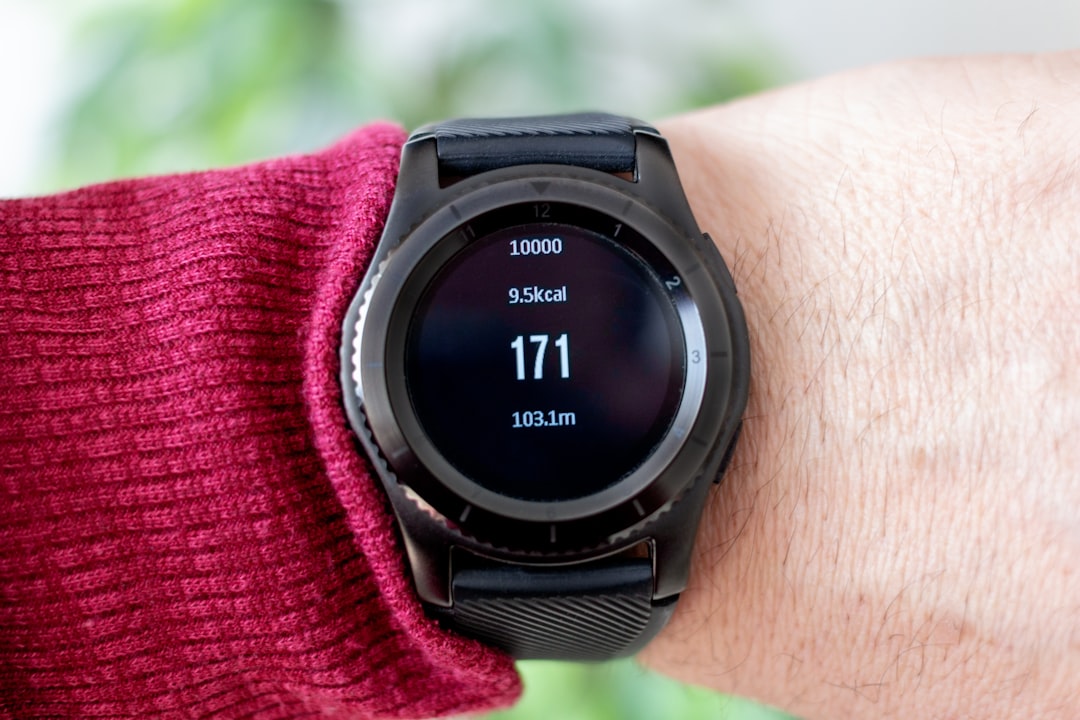Do Fitness Trackers Actually Work?
Smartwatches, wearable devices and apps provide all kinds of fitness metrics, but are they worth your time? And more importantly, are they good for your mindset?

I’ve developed a slight obsession with my Garmin watch.
It’s the first thing I look at when I wake up. I have to know my “sleep score.”
For those of you who aren’t Garmin devotees, here’s how the company describes the metric:
Your sleep score is a number (0-100) that summarizes the underlying data to reveal how you slept. A high sleep score means you are well-prepared for the challenges of the day ahead…
…Your nightly sleep score is calculated based on a blend of how long you slept, how well you slept and evidence of recovery activity occurring in your autonomic nervous system derived from heart rate variability data.
Sounds awesome, right? Why listen to my body when technology will tell me if I slept well?
Ironically, a device that’s supposed to help me track my health and encourage better fitness causes me to create a potentially unhealthy obsession. My wife and I both have noted as much as we focus on this score, it’s not always accurate. We’ve woken up well rested, and voila: our watches tell us our sleep was “poor.”
Wearable devices aren’t our only source for fitness data, either. Fitness apps connected to our devices now track our every move. I’m a heavy Strava user, and most of my workouts are uploaded onto the service. Strava provides a variety of interesting metrics, but the one that consistently has me scratching my head is my “Fitness” score:
So what’s going on here? This chart dates back two years to when I first started using the app. You can see my fitness score shot up quickly, coinciding with when I switched from running to cycling. At the end of the chart, you see my score plummet due to my recent ankle injury. The general trend since the initial spike has been slowly downward.
But how can this be? My cycling fitness has increased over this time period, not decreased. Prior to the injury, I felt like I was in my best shape in a few years. It doesn’t make sense.
I’ve been thinking about this lately. When it comes to fitness wearables, are we getting too hung up on the numbers, to the detriment of our own psyche? Just how accurate is the data, anyway?
What Does the Research Say?
Scientists have conducted several fascinating studies about devices and health data. Consider the following:
A 2020 study found smartphones seem to be more accurate for counting steps, compared to wrist-worn fitness devices, which often misclassify arm movements as steps.
A 2017 study examined the accuracy of heart rate measurements from multiple write-worn devices, and found none of them were as accurate as a chest-worn heart rate monitor.
A 2019 study determined several wrist-worn activity trackers did not show “valid results” in estimating maximum oxygen uptake and energy expenditure.
A 2021 study showed commercial sleep trackers perform well in detecting when you’re asleep or awake, but remain inconsistent in estimating actual stages of sleep (light, deep, rapid eye movement).
Bottom line: the performance of the devices is mixed and the they remain inconsistent.
I found the study on sleep tracking to be particularly interesting, and it mirrors my own experience. I’ve noticed my watch seems generally good at estimating how long I sleep, but the data about stages sometimes seems off. If I feel well rested and my watch says I slept poorly, it’s not about how long I slept, but if I got enough deep sleep. If my watch underestimates deep sleep, of course it will think I slept poorly.
The sleep data study illustrates the dichotomy around wrist-worn fitness device data. The wearables seem pretty good at tracking basic data, and while it’s not perfect, a good device can give you insight into your fitness and health trends: are you staying active? Is your heart rate normal? Are you calm or stressed?
But some of these deeper measures, like stages of sleep and fitness scores, can’t possibly be accurate or reflective of your actual experience.
Fitness Wearables and Mindset
Even though I’m religious about checking my sleep score, stress levels and other measures, I try to keep everything in perspective. For example, I completely discount my Strava “Fitness” score.
But this can be hard for some people, especially if you suffer with health anxiety. Consider this from psychiatrist Leela R. Magavi in a recent Washington Post article about fitness trackers and health anxiety:
“Some of my patients who suffer from anxiety disorders experience distress when they view their heart rate and breathing patterns,” Magavi said. She advises patients who struggle with obsessive compulsive disorder or disordered eating to avoid purchasing trackers.
From the same article:
In addition to making people obsessed with keeping their numbers where they think they should be, fitness trackers can discourage exercising at all. Steph Gaudreau, a nutritional therapy practitioner and strength coach in San Diego, said one of her clients purchased a tracker to help her feel motivated to walk regularly. Instead, it had the opposite effect.
The woman told Gaudreau if she knew she wasn’t going to get in 10,000 steps then she wouldn’t walk at all. “If I can’t meet the 10,000 number, why bother trying?” Gaudreau said the woman asked her.
In some cases, fitness trackers can do more harm than good. If you’re not able to keep the data in perspective, or it’s causing you emotional distress, maybe it’s best to ditch the device.


